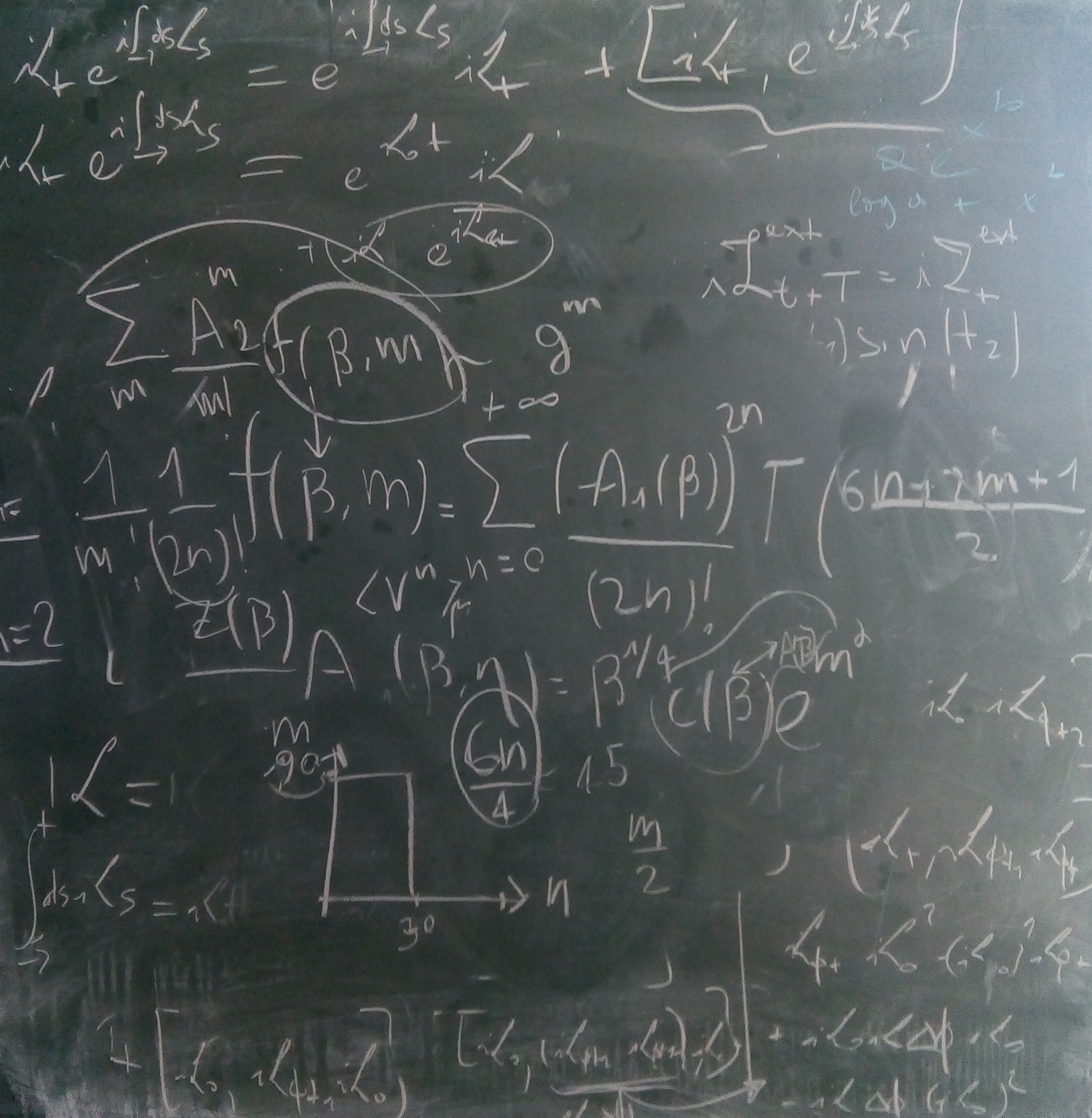Research Projects
The research in our group is divided into three main topics:
-
Computer Simulations
-
Density Functional Theory
-
Coarse-Graining (via projection-operator techniques).
Computer Simulations |
|
|
We use Monte Carlo (MC) and Molecular Dynamics (MD) simulation methods in order to study the materials properties of soft matter. Typical examples are liquid crystals and colloids. Fig.1 shows several Carbon black aggregates from a simulation snapshot. These aggregates have a fractal dimension. Percolation in Carbon black systems can be related to conductivity, resulting in applications for sensor or electrode materials.
Related Projects:
|

(Fig.1: Carbon black aggregates) |
Density Functional Theory (DFT) |
|
|
We use classical density functional theory (DFT) to study structural properties of many-body systems. We mainly focus on mixtures of (charged) hard spheres and rods, which represent an important reference for more complex particles. Currently, we examine ionic structure in electric double layers (EDL) and connectivity in percolating networks. Our findings can be applied to study and optimize supercapacitors and related technology for harvesting energy from differences in concentration and temperature. The sketch in Fig.2 shows (from right to left) a supercapacitor, its porous electrode, and the EDL. Ref.: A. Härtel. J. Phys.: Condens. Matter 29, 423002 (2017)
Related Projects:
|

(Fig.2: (from right to left) a supercapacitor, its porous electrode, and the EDL) |
Coarse-Graining |
|
|
In Statistical Physics problems, one is often interested in reducing the complexity of a many-body system by studying only a set of relevant observables. Such reductions in general go under the umbrella of coarse-graining, specially as soon as the natural timescale under which the observables of interest change is much larger than the microscopic timescale of the system. Within this framework, various projects are being conducted in the group aimed at developing coarse-graining techniques and formalisms that can also be applied in computer simulations, particularly under general out-of-equilibrium conditions. We mainly use projection operator techniques to derive stochastic equations of motion for coarse-grained observables. Such tools are specially useful to analyze memory effects occurring in many non-linear systems.
Related Projects:
|

(Fig.3: A typical day at the office attempting to develop a coarse-grained theory) |

